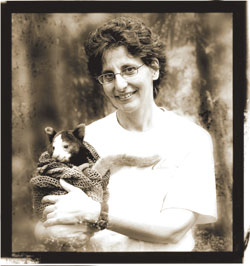
Lisa Dabek, '91, '94
Photo Courtesy of the Indianapolis Zoo

This year, Dabek scored a major victory in that fight, securing the first-ever national preserve in Papua New Guinea. The YUS Conservation Area (named for the region's three rivers, the Yopno, Uruwa and Som) encompasses more than 187,000 acres of rainforest. The government of Papua New Guinea formally approved the area in January. The agreement seals the land off from hunting, mining and other industrial developments, as well as keeping the 13 million tons of carbon stored in the forest biomass from being released into the atmosphere. "This is important for climate change issues as well as preserving biodiversity," Dabek says.
Dabek is the director of field conservation at Seattle's Woodland Park Zoo, where she started the Tree Kangaroo Conservation Program in 1996. In addition to protecting kangaroos, the project works to expand health and educational resources for villages in the remote YUS region. It provides vaccinations and midwife training, and improves schools by supporting teachers and curriculum development.
"It took a long time to gain the trust of the community members," says Dabek. "When I first started working in the YUS community, they thought my graduate student and I were a bit crazy to come all the way from the U.S. to study the animals in their forests! But over 12 years we have worked as partners for the betterment of the tree kangaroos and the forests, as well as the community."—Katie McVicker